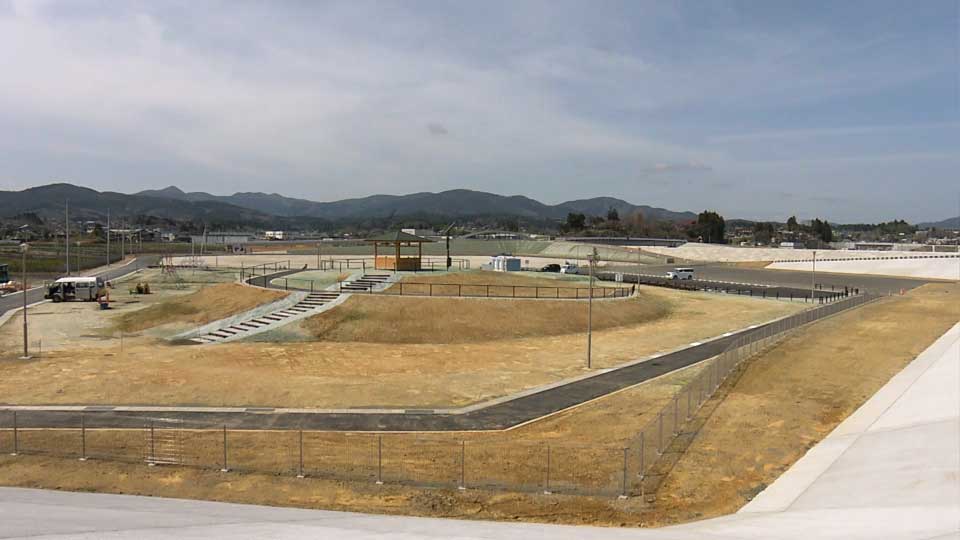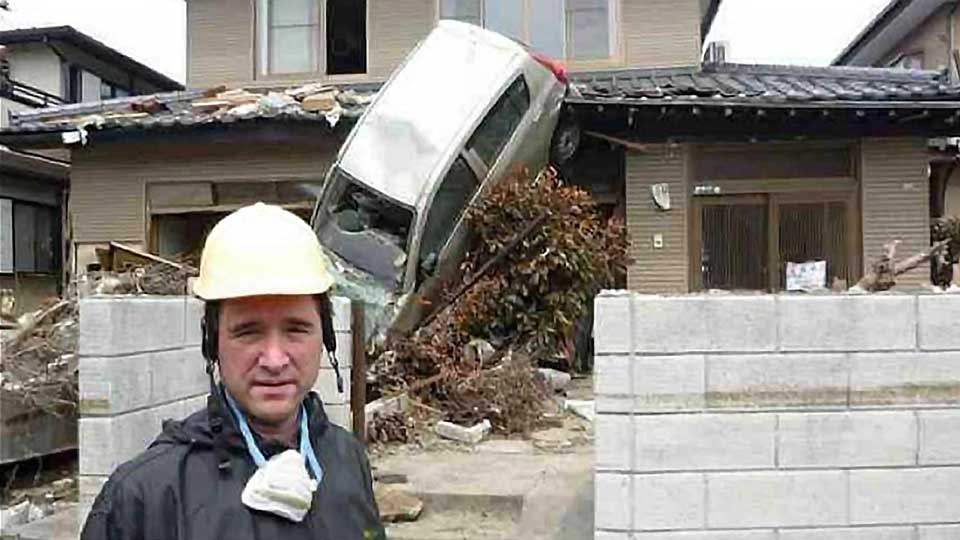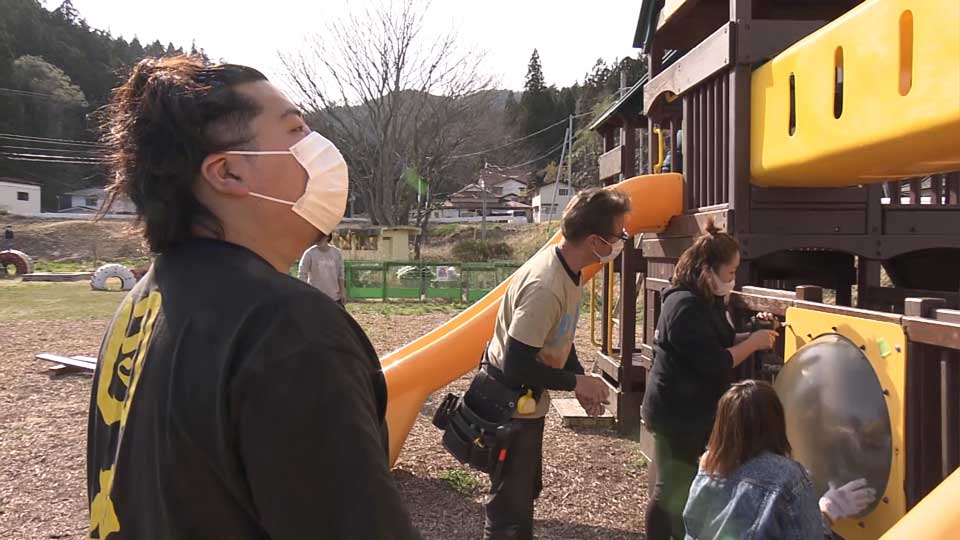Anop has spent much of the past decade building playgrounds for children dealing with trauma. He established an NPO called Playground of Hope that has built 63 playgrounds in the disaster-hit region and is extending its work into institutional children's homes.
One of the latest projects is at a municipal park in the city of Kesennuma, Miyagi Prefecture. The park sits in the Osaki district of the city, which lost nearly 30 residents and all 99 homes in the tsunami. Now, Osaki boasts the largest playground that Anop's team has built in the region.
Anop describes it as "one of the most ambitious and challenging projects" for his NPO, which started with a tiny playset amid the rubble. He says he is motivated by the sight of children laughing and smiling.
At the opening ceremony for the Kesennuma project he said: "We all know that studying is important and that sports is important but actually, play is also very important, so we hope that you come to the park often."

Anop, now 57, moved to Japan three decades ago from Massachusetts. He worked first as a model, and went on to set up various companies, including a talent agency. But when the 2011 disaster struck, his life changed course.
Making countless trips from Tokyo, he delivered food to people in temporary housing. He learned there were very few places for children to play. As a parent himself, Anop decided to help.
He got to work building playgrounds in Miyagi, Iwate and Fukushima, the three worst-hit prefectures. He found sponsors to buy playsets from the United States, scouted suitable sites, and recruited a team of volunteers. At first, he set out to build just a few, but soon appreciated the huge demand.

Anop's work is forging community bonds as people come together to maintain the donated facilities. In Kesennuma, Shiota Kenichi looks after a playground that was built in 2012. He narrowly escaped death in the tsunami and lost his home and his business.
Shiota, who has a son, reached out to Anop when the city administration told him it would take years to build a new park for the local children. Anop and his team installed a playground at the temporary business quarters where Shiota ran his noodle restaurant.
Shiota's son, Kai, now an adult, says he has fond memories of it. "It was a gathering place for me and my close friends to play and chat," he says.
Shiota describes it as a symbol of the community and the recovery from the disaster.

Playground of Hope is expanding into areas outside the disaster zone, helping children's homes across the country. Many of the facilities can't afford to install play equipment.
At a children's home in Chiba Prefecture, near Tokyo, staffers say youngsters have changed their behaviors since a playset was installed and the graveled yard was transformed into a green space. "There used to be frequent conflicts. Frustrated children would sometimes resort to violence, but since the playground was created, they release their stress and work off their energy. They smile more," says Fujimaki Manabu, who works there. "I really think play is effective in healing children."
Anon's project has borne fruit in a way he never expected. One of his corporate backers, the Hilton hotel chain, learned through participating in the program that the children who grow up in care facilities often face discrimination when they reach 18 and have to leave. So they started an internship program specifically for them, and currently have six on their payroll full-time.
"I think it's a hidden problem in society and it only came to light for us when we partnered with the Playground of Hope," says Neil McInnes, General Manager of the Hilton's Conrad Tokyo hotel. "Visiting various children's homes as volunteers every year made us more aware of what's happening and more determined to help."
Anop's office in Tokyo is filled with messages of gratitude and pictures from all over Japan. He says he is honored to be involved with projects that give him a strong sense of purpose: "We are the only (organization) focusing on the power of play. So if we don't do it, who will? There's still so much work to be done, and so many other children that need our support."
For now, the coronavirus pandemic has slowed Anop's activities. His team is working on only half the usual number of playgrounds. Nevertheless, he remains optimistic. "Covid is making it very difficult for us right now, but it won't be around forever. Once this is behind us, we will be able to get back to work and start doing more and more playsets all over Japan."

